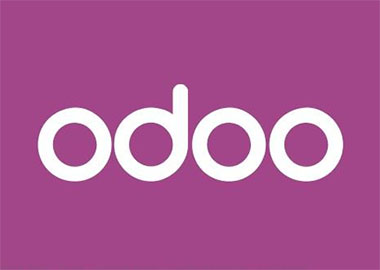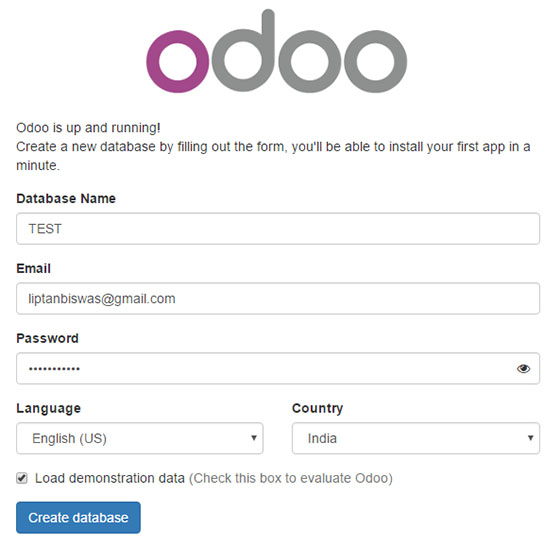How To Install Odoo ERP on Debian 12

In this tutorial, we will show you how to install Odoo ERP on Debian 12. Odoo is a powerful open-source ERP (Enterprise Resource Planning) software that offers a wide range of business management tools, including CRM, e-commerce, accounting, inventory management, and more. With its modular architecture and user-friendly interface, Odoo has become a popular choice for businesses of all sizes looking to streamline their operations and boost productivity. One of the great advantages of Odoo is its compatibility with various operating systems, including Debian 12.
This article assumes you have at least basic knowledge of Linux, know how to use the shell, and most importantly, you host your site on your own VPS. The installation is quite simple and assumes you are running in the root account, if not you may need to add ‘sudo‘ to the commands to get root privileges. I will show you the step-by-step installation of the Odoo ERP on Debian 12 (Bookworm).
Prerequisites
Before proceeding with the installation of Odoo on Debian 12, ensure you meet the following requirements:
- A server running one of the following operating systems: Debian 12 (Bookworm).
- It’s recommended that you use a fresh OS install to prevent any potential issues.
- SSH access to the server (or just open Terminal if you’re on a desktop).
- An active internet connection. You’ll need an internet connection to download the necessary packages and dependencies.
- A user account with sudo privileges to execute administrative commands.
Install Odoo ERP on Debian 12 Bookworm
Step 1. To begin the installation process, it’s crucial to update your Debian 12 system to ensure you have the latest packages and security patches. Open a terminal and run the following commands:
sudo apt update sudo apt upgrade
Step 2. Installing Git.
Git is a distributed version control system that allows you to clone the Odoo repository from GitHub. To install Git on your Debian 12 system, use the following command:
sudo apt install git
Once the installation is complete, you can verify the Git version by running:
git --version
This command will display the installed Git version, confirming that it has been successfully set up on your system.
Step 3. Installing Python Dependencies.
Odoo is primarily written in Python, so you’ll need to install Python and its related dependencies. Run the following command to install the necessary packages:
sudo apt install python3 python3-pip python3-dev python3-venv python3-wheel libpq-dev libxslt-dev libzip-dev libldap2-dev libsasl2-dev
To create a clean and isolated environment for Odoo, it’s recommended to use a Python virtual environment. Create a new virtual environment by running:
python3 -m venv odoo-venv
Activate the virtual environment with the following command:
source odoo-venv/bin/activate
Your terminal prompt will now indicate that you are working within the virtual environment.
Step 4. Installing PostgreSQL.
Odoo uses PostgreSQL as its database backend. To install PostgreSQL on Debian 12, run the following command:
sudo apt install postgresql
After the installation, switch to the postgres user to create a PostgreSQL user for Odoo:
sudo su - postgres createuser --createdb --username postgres --no-createrole --no-superuser --pwprompt odoo
Enter a secure password when prompted. This command creates a PostgreSQL user named “odoo” with the ability to create databases but without superuser privileges.
Exit the postgres user session by typing exit and pressing Enter. You can verify the database connection by running:
psql -U odoo -h localhost -d postgres
If the connection is successful, you will enter the PostgreSQL command-line interface. Type \q and press Enter to exit.
Step 5. Installing Node.js and npm.
Odoo requires Node.js and npm for certain website features. Install them using the following command:
sudo apt install nodejs npm
Verify the Node.js and npm installation by running:
node --version npm --version
Step 6. Installing wkhtmltopdf
Wkhtmltopdf is a command-line tool used by Odoo to generate PDF reports. Download the appropriate package for Debian 12 from the official website:
wget https://github.com/wkhtmltopdf/packaging/releases/download/0.12.6-1/wkhtmltox_0.12.6-1.buster_amd64.deb
Next, install wkhtmltopdf and its dependencies using the following command:
sudo apt install ./wkhtmltox_0.12.6-1.buster_amd64.deb
Step 7. Installing Odoo on Debian 12.
Navigate to the Odoo user’s home directory:
cd /opt/odoo
Clone the Odoo repository from GitHub using the following command:
sudo git clone https://github.com/odoo/odoo.git
Change to the cloned Odoo directory:
cd odoo
Check out the desired version branch. For example, to use Odoo 15.0, run:
sudo git checkout 15.0
While in the cloned Odoo directory, install Odoo’s Python dependencies using pip:
pip install -r requirements.txt
This command will install all the necessary Python packages specified in the requirements.txt file.
If you encounter any missing dependencies during the Odoo installation process, you can install them individually using apt install or pip install.
Step 8. Configure Odoo Server.
Create a configuration file for Odoo by running:
sudo nano /etc/odoo.conf
Add the following lines to the configuration file:
[options] ; Database db_host = False db_port = False db_user = odoo db_password = your_odoo_db_password addons_path = /opt/odoo/odoo/addons,/opt/odoo/custom_addons ; Log logfile = /var/log/odoo/odoo.log ; Security admin_passwd = your_admin_password
Replace your_odoo_db_password with the password you set for the Odoo PostgreSQL user in Step 4, and your_admin_password with a strong password for the Odoo admin user.
Step 9. Set Up Odoo Service.
To run Odoo as a system service, create a new file named odoo.service in the /etc/systemd/system/ directory:
sudo nano /etc/systemd/system/odoo.service
Add the following content to the file:
[Unit] Description=Odoo ERP After=postgresql.service [Service] Type=simple User=odoo Group=odoo ExecStart=/opt/odoo/odoo-venv/bin/python3 /opt/odoo/odoo/odoo-bin -c /etc/odoo.conf KillMode=mixed [Install] WantedBy=multi-user.target
Reload the systemd configuration:
sudo systemctl daemon-reload
Start the Odoo service:
sudo systemctl start odoo
Enable the Odoo service to start automatically on system boot:
sudo systemctl enable odoo
Step 10. Access Odoo Web Interface.
Open a web browser and navigate to http://<server-ip>:8069, replacing <server-ip> with the IP address or domain name of your Debian 12 server.

Congratulations! You have successfully installed Odoo. Thanks for using this tutorial to install the latest version of the Odoo ERP on Debian 12 Bookworm. For additional help or useful information, we recommend you check the official Odoo website.